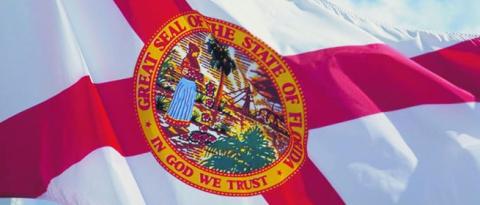Given the expected 75 word limit on proposed 2014 constitutional amendments, Florida Independent Voting (fivorg.com) proposes the following legislative changes to implement Top-Two Open Primary. The changes are patterned after the Top-Two Open Primary laws in California and Washington state.
All candidates for "Top-Two" offices will be listed on one ballot and only the top two vote-getters in the primary election -- regardless of party affiliation or whether one candidate receives a majority of all votes cast in the primary election -- move on to the general election. Candidates cannot run in the general election without having been one of the top two vote-getters in the primary
The Top-Two Primary will include U.S. Senate and House of Representatives, the state Legislature, partisan statewide offices such as governor, and partisan county offices such as county commissioner or county treasurer. Judicial, city, town, and special purpose district elections will remain nonpartisan in accordance with current law. The current presidential primary election process will remain unchanged under Top-Two.
Write-in candidates will be allowed, but will only move on to the general election if a candidate is one of the top two vote-getters in the primary election.
Each candidate for office may state a political party that he or she prefers. A candidate’s affiliation does not imply that the candidate is nominated or endorsed by the party, or that the party approves of or associates with that candidate. If a candidate does not have a party affiliation, their affiliation will be No Party Affiliation (NPA) and will be indicated on the ballot. The candidate is only representing himself or herself, not a political party, when he or she appears on the ballot.
Nothing in the proposed legislation will restrict the right of individuals to join or organize into political parties or in any way restrict the right of private association of political parties. The proposed legislation will not restrict parties' rights to contribute to, endorse, or otherwise support or oppose candidates for elective office. Political parties may establish processes as they see fit to elect party officers, endorse or support candidates, or otherwise participate in all elections, but no party processes will be paid for or subsidized using public funds.
The Supreme Court ruled the political parties do not have a constitutional right to have their nominees distinguished on the ballot. Candidates can promote themselves in voters’ pamphlets, advertisements, and other forums as the nominees of a political party.
In a Top-Two Primary, a candidate’s party preference is purely for informational purposes and does not play any role in the administration of the election. Because the candidates are not representatives or nominees of a political party, a party is not allowed to name a replacement candidate should the original candidate be disqualified or die before the election.
Candidates qualifying to run for office whether by petition or payment of filing fees remains unchanged from current law.
All qualified voters and candidates will be treated equally by statutes and regulations governing elections regardless of their party affiliation or lack thereof. To the extent that any privileges or procedures are made available to candidates or political parties, they will be made available to all candidates or political parties, regardless of party affiliation, recognition, or lack thereof.
We invite your comments and thoughts on how to make our elections more inclusive and fair.
